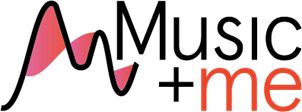Music and Me (Karen Burland Clark)

My research aims to support musical learners understand their relationships with music, in order to make realistic choices about the role of music in their lives – whether that is as a career choice or as a lifelong hobby. I am developing a series of resources for children learning music (secondary school aged and older), and for parents/carers and teachers who support music learners. While currently no such resources exist, their impact could be manifold: from supporting learners to overcome transitions and crises in their lives, through engagement in extra-/co-curricular music activities, leading up to a more healthy and self-reflective workforce for those following that pathway and reducing inequalities in access to musical education.
Over the past year I have developed a version of my Musical Identity Measure (MIM; Burland et al, 2022) into a resource for secondary school aged musical learners. This Music & Me quiz and the associated resources for teachers have been developed in collaboration with young people and teachers over a series of 5 workshops. Workshops with student and adult musicians so far have been positively received and the tools have prompted ongoing reflection on musical activities and ideas for new approaches to their work with music. The work was presented at the Music and Drama Education Expo, London, 2025 and teachers reported that they found the work helpful and they planned to incorporate it into their practice: “I’ll pay more attention to how they feel about music and consider more their relationship with music”, “Empower them that it’s ok to make mistakes to learn from.”
Music hubs with which I have spoken are interested in integrating these resources in the ways in which they monitor and support progression of their musical learners. Key music education organisations in the UK, such as Music Mark and Young Sounds, have offered to host the resources on their websites and to promote them via key community events.
At a time when the numbers of musical learners are diminishing throughout the education lifecycle, these resources could have a positive impact on retention of learners, helping them to fully benefit from the social aspects of making music, leading to a more healthy and self-reflective workforce, and reducing the gap in the access to music between children from different socio-economic backgrounds.

